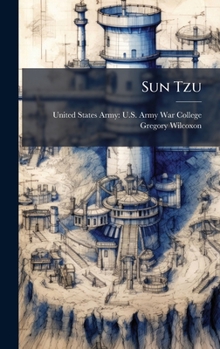Sun Tzu
In an environment in which the United States is the dominant conventional military power, many theorists argue that future wars will be unbalanced or asymmetrical. This USAWC AY-10 resident student author argues that in that circumstance, Sun Tzu's indirect or battle avoidance theory is relevant to United States war strategy in the twenty-first century. Colonel Wilcoxon elaborates on Sun Tzu's theories and explains why they are so viable and applicable in contemporary strategic environment. He concludes that to counter current national security threats, twenty-first century United States' strategists should rely on Sun Tzu as their primary theorist because his writings are as pertinent today as they were thousands of years ago.
This work has been selected by scholars as being culturally important, and is part of the knowledge base of civilization as we know it. This work was reproduced from the original artifact, and remains as true to the original work as possible. Therefore, you will see the original copyright references, library stamps (as most of these works have been housed in our most important libraries around the world), and other notations in the work.
This work is in the public domain in the United States of America, and possibly other nations. Within the United States, you may freely copy and distribute this work, as no entity (individual or corporate) has a copyright on the body of the work.
As a reproduction of a historical artifact, this work may contain missing or blurred pages, poor pictures, errant marks, etc. Scholars believe, and we concur, that this work is important enough to be preserved, reproduced, and made generally available to the public. We appreciate your support of the preservation process, and thank you for being an important part of keeping this knowledge alive and relevant.






